Report of Seminar held at One Great George Street, London, SW1P 3AA 29th February 2024
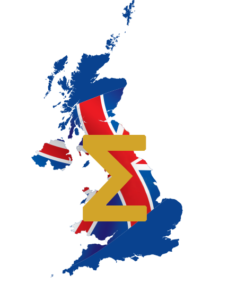
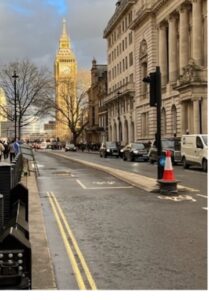
Note: Views expressed by the speakers and other individuals do not necessarily represent the opinions of their organisations.
Extremes of weather are already causing loss of homes and livelihoods across the world, and it has been estimated that the average global temperature for 2023 was already 1.5 degrees higher than the average for the period 1850-1900. It has therefore become as important to identify ways to adapt to the effects of climate change as it is to avoid it. Meanwhile, last September the UK Prime Minister had postponed banning the sale of new petrol and diesel cars from 2030 to 2035 and announced further drilling in the North Sea. The terms Climate Change and Global Warming both have wide ranging implications that encompass almost every area of both human activity and of thought. This seminar covered many of those issues as background to considering how we can best measure success in combatting climate change. We won’t know if we are measuring progress in the right way, unless we understand the issues that need to be measured.
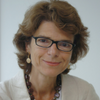
Vicky Pryce – Vicky is a member of the Better Statistics Advisory Committee and Chief Economic Adviser and board member at the Centre for Economics and Business Research (CEBR). Vicky has held senior positions in business and the Civil service including as partner and chief economist at KPMG and joint head of the UK government economic service. She is author of several books including the celebrated Greekonomics.

Professor Piers Forster – Professor Forster is the Interim Chair of the Climate Change Committee. He is also the Director of the Priestley Centre for Climate Futures and Professor of Physical Climate Change at the University of Leeds. As an atmospheric physicist, Piers researchers both the causes of climate change and climate feedbacks in the Earth system, to understand temperature and rainfall changes and improve their projections. He has also played a significant role authoring Intergovernmental Panel on Climate Change (IPCC) reports, including the IPCC Special Report on 1.5°C (2018).
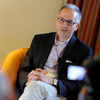
Ehsan Masood – Ehsan is a science-policy journalist. He is the journal Nature’s Editor for Editorials and also has responsibility for news coverage of Africa and the Middle East. Ehsan is the author of a number of books and has made documentary programmes at the intersection of science, finance, history and policy for BBC Radio 4.
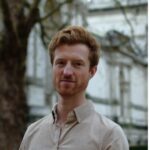
William Carr – Will is a policy analyst at Green Alliance, working on numerically scrutinising the UK’s net-zero progress both broadly and within the industrial sector. While in his first year in the environmental field, Will brings cross-disciplinary data skills from previous work in academia, getting a PhD in computational neuroscience from the University of Bristol.
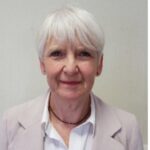
Jill Poet – Jill is the award winning co-founder and CEO of the Organisation for Responsible Businesses (ORB), author of It Really Is Just Good Business, and steering committee member of the Micro Business Alliance. ORB offers membership and certification options for small businesses, including freelancers and sole proprietors, that care about people and the environment and want to be part of a movement for a better way of doing business.
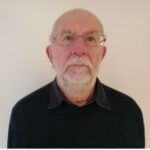
Ian Plewis – Ian retired from the University of Manchester in 2015 to become Emeritus Professor of Social Statistics. He was Chair of the International Development Section of the RSS from 2017 to 2020 and lectured at the African Institute for Mathematical Sciences in Ghana and Tanzania. More recently, he has become interested in the ways in which statistics can contribute to our understanding of the climate emergency with particular reference to agriculture.
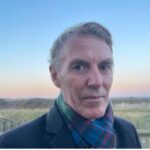
Nigel Jacklin – Nigel is a statistician and market researcher based in East Sussex. Having worked for BP and Ipsos he set up his own research and data company in 1995 working in the UK and worldwide. He has worked as a consultant to the Financial Times and The Ecologist and helped set up UKOM (the body responsible for Internet Audience Measurement in the UK). He currently owns and runs Accord.me.UK.
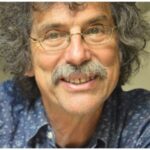
Merle Gering – Merle’s activities include that of poet, climate activist, trade union rep, gardener and founder of an international marathon in Siberia, He is a fierce critic of the Office of National Statistics methods for providing local population estimates and has been arrested 5 times for climate protests. Fellow prisoners in HMP Thameside have suggested “you’re a political prisoner” their words, not Merle’s. Born in California he was educated at Columbia University and UC Berkeley.
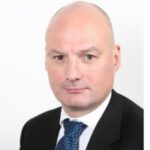
R.E Ward – Bob is Policy and Communications Director at the Grantham Research Institute on Climate Change and the Environment and the ESRC Centre for Climate Change Economics and Policy London School of Economics and Political Science. He joined as Policy and Communications Director of the Grantham Research Institute on Climate Change and the Environment and when it was founded in 2008 at the London School of Economics and Political Science. He is also Chair of the London Climate Change Partnership.
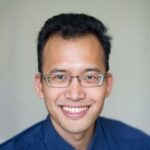
Boromeus Wanengkirtyo – Boro is a Research Manager and Policy Advisor at the Structural Economics Division in the Bank of England, where he heads the Macroeconomics of Climate team. The team leads on the Bank’s analysis on the macroeconomic impacts of climate change and mitigation policies, and their implications for monetary policy. He previously specialised on inflation dynamics and the transmission of monetary policy. He received his PhD in Economics from the University of Warwick.
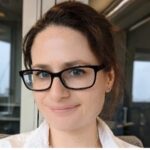
Dr Alison Todd – Alison is a Senior analyst at the Office for Budget Responsibility in London. Her work focuses on the risks to UK public finances of climate change and the energy system. She has previously led the OBR’s work on estimating the fiscal implications of transitioning to a low carbon economy.

Shaun Richards – Shaun is an independent economist and journalist, who analyses economic events and developments for Core Finance TV, Bloomberg Radio and various publications including the Business live section of the Guardian, City-AM and the Daily Express. A graduate of the LSE, Shaun has also worked in Tokyo and he maintains a watchful eye on inflation rates and the policies of the Bank of England, including Quantitative Easing (QE).
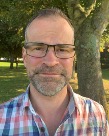
Ian Townsend – Ian has led the Office for National Statistics’ environment statistics and analysis work since June 2020. His team produces key measures of the UK’s environmental economy and green jobs, greenhouse gas emissions and environmental and natural capital accounts aligned with international standards, contributing to the ONS’ Beyond GDP work. Ian’s background includes advising MPs and select committees on international economic policy and statistics. Prior to joining the ONS, Ian was chief executive of Bristol’s environmental sustainability partnership.
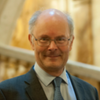
Professor Sir John Curtice – John is a member of the Better Statistics Advisory Committee, Professor of Politics at the University of Strathclyde and Senior Research Fellow at the National Centre for Social Research; he is also chief commentator on What UK Thinks. As the UK’s premier psephologist he is a frequent guest on radio and TV illuminating the results of national and local elections.